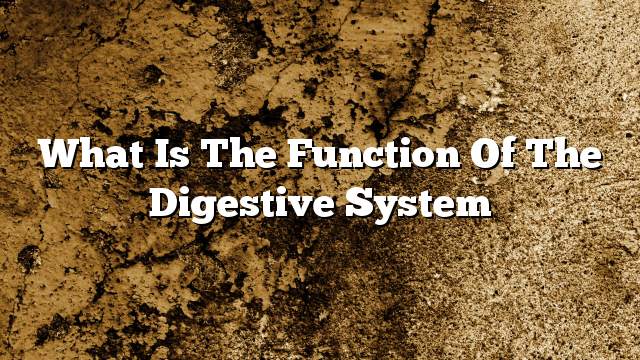Digestive
The digestive system is one of the necessary organs of the body, a group of hollow organs that allow food to pass through the mouth until it reaches the anus. It reaches a length of nine meters and includes: mouth, pharynx, esophagus, stomach, intestines, large intestines, Liver, pancreas, and each member of these important function, and we will talk in this article about the function of the digestive system.
Gastrointestinal functions
Oral and dental function
Chewing is the first step in the digestive system. Large pieces of food are broken into small pieces that are easy to digest. Saliva also plays an important role. It is not just water. It contains enzymes that break down starchy foods such as bread and potatoes during chewing.
Function of esophagus
The swallowing process is simple. However, it requires the help of the tongue to push the food to the back of the throat. The muscles push the food into a long tube that reaches the stomach. This tube is called the esophagus. During this process, a flutter occurs inside, The trachea, to prevent food from entering it by mistake, as the entry of any food may cause suffocation, called the person who slips the tongue of the mizmar, and it works automatically.
Function of stomach
The stomach is the second stage of the digestive system, where food settles within four hours. The enzymes break down the elements in the food, such as proteins. The stomach also kills the harmful bacteria to prevent any disease.
Function of small intestine
The function of the first part of the small intestine is to treat the juices from the pancreas and liver. This juice is used to complete the food cracking process. For the second part of the intestine, the process of absorption of food from the intestine into the body through the blood.
Large bowel function
The large intestine receives food that is not needed by the body, or that can not be used, and after passing through it is disposed of as waste.
Liver and pancreas function
Both the liver and the pancreas have many functions that help the digestive system to function continuously. They also work with the small intestine. The liver provides the body with so-called yellow, a substance stored in the gallbladder that breaks down the fat into small units. Blood before going to other areas of the body, and in relation to the pancreas it provides the body with additional enzymes digesting all types of food.
